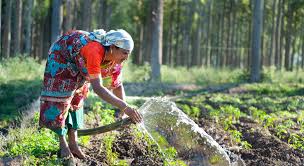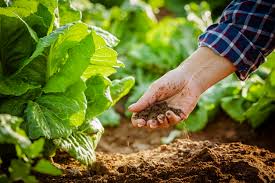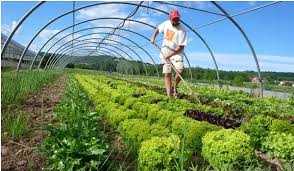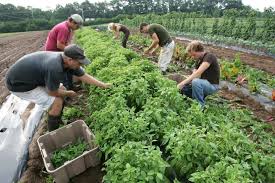Organic agriculture was developed through conscious efforts to establish the best possible relationship between the earth and human activities.
Since its inception, the concept of organic agriculture has evolved significantly and now faces three major challenges: integration into policymaking, entry into the anonymous global market, and the transformation of organic products into commercial commodities.
Over the past two decades, there has also been growing awareness among the global community regarding environmental preservation and food quality assurance.
Proponents of organic farming believe it can meet these demands and serve as a tool for comprehensive rural development.
Presently, the development of organic agriculture is being increasingly embraced in the mainstream and shows promising commercial, social, and environmental outcomes.
While the philosophy behind organic farming has remained consistent, the modern organic movement now emphasizes environmental sustainability, along with the original concerns of promoting healthy soil, healthy food, and healthy communities.
Read Also: Feed Lot Fattening of Rams Practice
Meaning and Definition of Organic Farming

Organic farming refers to the production of food and livestock without using herbicides, pesticides, weedicides, synthetic fertilizers, or genetically modified organisms. Instead, it relies on natural resources such as manure and compost.
According to a USDA study team on organic farming, it is defined as:
Organic farming is a system which avoids or largely excludes the use of synthetic inputs (such as fertilizers, pesticides, hormones, feed additives etc.) and to the maximum extent feasible relies upon crop rotations, crop residues, animal manures, off-farm organic waste, mineral-grade rock additives and biological systems of nutrient mobilization and plant protection.
Similarly, the Food and Agriculture Organization (FAO) defines it as:
“Organic agriculture is a unique production management system which promotes and enhances agro-ecosystem health, including biodiversity, biological cycles, and soil biological activity.
This is accomplished by using on-farm agronomic, biological and mechanical methods while excluding all synthetic off-farm inputs.”
Core Principles and Philosophy Behind Organic Farming
1. Philosophical Foundations and Agricultural Relationships
Philosophically, organic farming means “farming in the spirit of organic relationships.” In this system, everything is interconnected.
Understanding the relationships between soil, water, and plants; between soil and soil microbes; between waste products and the environment; and between agriculture, forestry, and the atmosphere is essential. This interconnectedness forms the foundation of organic farming.
The philosophy of living in harmony with nature has ancient agricultural roots, still practiced in places like India, China, and the Andes.
While organic agriculture reflects these age-old values, the emergence of modern concepts such as biodynamic and natural farming can be traced to the early 20th century.
Conventional agriculture differs by relying on chemical fertilizers and genetically modified seeds, whereas organic farming is guided by the following principles:
- Nature is the ideal model for farming, as it operates without synthetic inputs and avoids overuse of water.
- Organic farming respects nature’s systems, avoiding nutrient mining and preserving soil integrity.
- Soil is treated as a living entity, rich with life and essential for sustained fertility.
- Soil microorganisms are nurtured, contributing significantly to soil productivity.
- Total soil environment matters, including soil structure and cover.
In essence, organic agriculture seeks to cultivate crops in a manner that keeps the soil healthy through the use of organic waste and biological materials enriched with beneficial microbes. This promotes sustainability in a pollution-free environment.
Key Features and Benefits of Organic Farming for Small-Scale Farmers

1. Key Features of Organic Farming
Organic agriculture aims at a sustainable production system built on natural processes. Its main features include:
1. Maintains soil fertility by depending primarily on local, renewable resources.
2. Maximizes nutrient recycling through organic matter and biological nitrogen fixation.
3. Enhances soil quality by encouraging biological activity among soil microorganisms.
4. Controls pests and weeds using crop rotation, biodiversity, natural predators, organic manures, and selective biological methods.
5. Efficient use of solar energy and natural biological productivity.
6. Avoids foreign substances, such as GMOs and synthetic agrochemicals.
7. Preserves biodiversity in both the farming system and surrounding environment.
8. Protects natural habitats and wildlife through eco-conscious practices.
9. Promotes humane livestock rearing, considering natural housing, nutrition, health, and breeding.
2. Advantages to Small-Scale Farmers
Organic farming is sustainable and eco-friendly, making it suitable for small-scale agricultural systems. Its benefits to smallholder farmers include:
1. Increased yields in low-input regions.
2. Biodiversity conservation on and around the farm.
3. Enhanced income or reduced production costs.
4. Access to safe and diverse food for farming households.
5. Long-term sustainability of the agricultural system.
Research conducted by the International Fund for Agricultural Development (IFAD) in developing countries like India and China indicates that adopting organic farming can significantly increase income for smallholders. Certified organic production also offers access to premium markets.
Read Also: General Principles of Goat Production
Justification and Agricultural Need for Organic Farming

Following the Green Revolution, increased food grain production was achieved through improved crop varieties and chemical inputs.
However, this success came at the cost of soil degradation and declining fertility.
With the global population rising rapidly, sustainable food production has become a critical need. The Green Revolution’s chemically intensive methods are showing diminishing returns and unsustainable outcomes. Moreover, chemical farming contributes to pollution and climate change.
Organic farming presents a viable alternative. Its advantages include:
1. Higher nutrient content, as organic foods are richer in vitamins, minerals, and enzymes.
2. Protection from GMOs, which are often linked to health risks and sometimes not labeled.
3. Better taste and natural quality, stemming from balanced soil management.
4. Direct support to local farmers, contributing to a more secure and cost-effective future.
5. Conservation of agricultural diversity, as organic farming helps preserve crop species that are disappearing under industrial agriculture.
Organic farming stands out as a responsible and effective system to address the environmental, social, and health-related shortcomings of conventional agriculture while ensuring long-term productivity and sustainability.
Do you have any questions, suggestions, or contributions? If so, please feel free to use the comment box below to share your thoughts. We also encourage you to kindly share this information with others who might benefit from it. Since we can’t reach everyone at once, we truly appreciate your help in spreading the word. Thank you so much for your support and for sharing!

